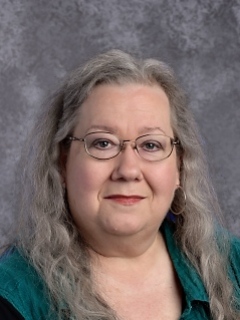By Jordan Beach

It is not an easy thing to get immersed in the details if one doesn’t find a particular subject interesting, purports Reinhardt’s Dr. Theresa L. Ast, professor of history and coordinator of the interdisciplinary studies program. But, says Ast, her interest in history stemmed from its importance to her parents, saying her mother’s strengths and interests became her own.
To this day, Ast, reveres her parents as excellent role models and tries emulating them as a person, scholar and educator.
“My mother was an English teacher, an expert in grammar and composition, who studied Greek and Latin, and had a great appetite for all kinds of literature. My father left Poland in 1951, emigrated to America and spent 20 years in the U.S. Air Force, serving his adopted country and he never, ever stopped reading and learning – from him I learned to value history, geography and science,” said Ast.
Dr. Ast’s family also influenced a unique connection with a colleague. When Ast began at Reinhardt in 1998, her first office on the bottom floor of the Hill Freeman Library had two paintings that were noticed by a faculty member she had yet to meet.
“He was so excited, ‘I know those paintings, I would know them anywhere! Where did you get paintings by Wanda Ast? Did you buy them at an art show?’ I was happy to tell him that my Polish grandmother, Wanda Ast, gave them to me,” recounted Ast.
That faculty member was Curtis Chapman. The late art professor was a 15-year friend of Ast’s grandmother, and her paintings brought together another friendship in the family.
“Reinhardt is the perfect size – our small classes enable students and faculty to get to know each other on a deep level, to learn and discover together,” she said.
Ast received her graduate degrees from Emory University’s history program (the M.A. and Ph.D.), majoring in Modern European History with a focus on Germany and the Holocaust. She believes history courses should go beyond teaching names and dates and improve students’ ability to write coherently and clearly about complicated situations. She said history helps people understand and appreciate other societies and cultures.
“Studying history teaches us how to read critically, think analytically, conduct research, search for patterns, evaluate evidence, determine cause and effect, predict the consequences of decisions, understand how economics, religion, politics and culture combine to produce modern societies.”
With every course she teaches, Ast hopes her students understand that good history reflects the world as accurately as possible and the real world is extraordinarily complicated.
“Almost every event, movement, group, government, development in history occurred as a result of ‘multiple factors, multiple causes.’ If we look for simple black and white answers, we will not find them, and we will not understand the world, the society, the culture we live in,” she said.
When not teaching history, Ast likes spending time with family and friends, rescuing and adopting feral cats, listening to music, watching dramatic and historical films, learning foreign languages, looking at sculptures and art and simply being alone with a great book.

